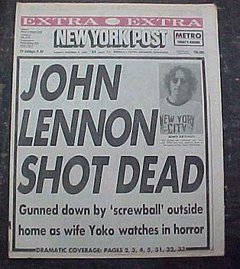

The Novel's Reception
The Catcher in the Rye has been listed as one of the best novels of the 20th century. Shortly after its publication, writing for The New York Times, Nash K. Burger called it "an unusually brilliant novel," while James Stern wrote an admiring review of the book in a voice imitating Holden's. 41st United States president George H. W. Bush called it "a marvelous book," listing it among the books that have inspired him. In June 2009, the BBC's Finlo Rohrer wrote that, 58 years since publication, the book is still regarded "as the defining work on what it is like to be a teenager. Holden is at various times disaffected, disgruntled, alienated, isolated, directionless, and sarcastic." Adam Gopnik considers it one of the "three perfect books" in American literature, along with Adventures of Huckleberry Finn and The Great Gatsby, and believes that "no book has ever captured a city better than Catcher in the Rye captured New York in the fifties." Not all reception has been positive, however.
Censorship
In 1960 a teacher was fired for assigning the novel in class; he was later reinstated. Between 1961 and 1982, The Catcher in the Rye was the most censored book in high schools and libraries in the United States. In 1981 it was both the most censored book and the second most taught book in public schools in the United States.According to the American Library Association, The Catcher in the Rye was the tenth most frequently challenged book from 1990–1999. It was one of the ten most challenged books of 2005 and although it had been off the list for three years, it reappeared in the list of most challenged books of 2009. The challenges generally begin with Holden's frequent use of vulgar language, with other reasons including sexual references, blasphemy, undermining of family values and moral codes,[Holden's being a poor role model, encouragement of rebellion, and promotion of drinking, smoking, lying, and promiscuity. Often the challengers have been unfamiliar with the plot itself. Shelley Keller-Gage, a high school teacher who faced objections after assigning the novel in her class noted that the challengers "are being just like Holden... They are trying to be catchers in the rye." A reverse effect has been that this incident caused people to put themselves on the waiting list to borrow the novel, when there were none before.
Excerpt from: "The Catcher in the Rye." Wikipedia. August 17, 2015. Retrieved June 13, 2020. Web.
"J.D. Salinger spent 10 years writing The Catcher in the Rye and the rest of his life regretting it," according to a new book about one of America's best-known and most revered writers. Salinger died three years ago at the age of 91, after publishing four slim books. But Catcher in the Rye has sold more than 65 million copies and has become a touchstone for young people coming of age around the world. It still sells hundreds of thousands of copies every year.
Shane Salerno and David Shields co-authored Salinger, a book looking at Salinger's work and his life. Salerno is also the director of a related documentary, to be released Friday. Salerno spoke with Weekend Edition Sunday guest host Wade Goodwyn about Salinger and the book that made him a reluctant literary superstar.
The interview is below.


The Catcher in the Rye's Connection to Shootings
The most well-known event associated with The Catcher in the Rye is arguably Mark David Chapman's murder of John Lennon. Chapman identified with the novel's narrator to the extent that he wanted to change his name to Holden Caulfield. On the night he shot Lennon, Chapman was found with a copy of the book in which he had written "This is my statement" and signed Holden's name. Later, he read a passage from the novel to address the court during his sentencing. Daniel Stashower speculated that Chapman had wanted Lennon's innocence to be preserved by death, inspired by Holden's wish to preserve children's innocence despite Holden's later realization that children should be left alone.
After John Hinckley, Jr.'s assassination attempt on Ronald Reagan in 1981, police found The Catcher in the Rye among half a dozen other books in his hotel room. Robert John Bardo, who murdered Rebecca Schaeffer, was carrying the book when he visited Schaeffer's apartment in Hollywood on July 18, 1989.
Excerpt From: "The Catcher in the Rye." Wikipedia. August 17, 2015. Retrieved June 13, 2020. Web.